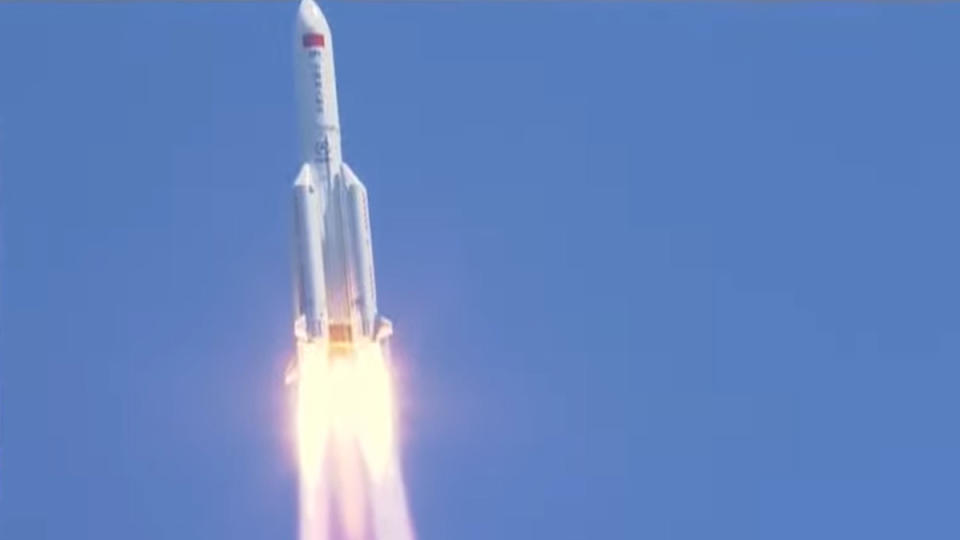China plans to use parachutes to control its rocket debris problem
China is finalizing testing of a parachute system to help control falling rocket debris downrange.
Falling rocket boosters from Chinese orbital launches from inland launch centers have caused issues in recent years as the country ramps up its space activities.
The China Aerospace Science and Technology Corporation (CASC), which makes the country's Long March rockets, is now close to finalizing the design of parachutes and related subsystems to bring rocket boosters down much more accurately.
Related: Chinese rocket stage crashes to Earth over Texas

The parachute system will be used to recover side boosters attached to China's Long March 3B, 3C and 2F rockets. CASC is also looking at recovering payload fairings, which protect spacecraft on their way up through the atmosphere before being jettisoned.
"In the booster's process of falling, we open the parachute and use its gliding control performance to reduce the original landing area of 30 to 90 kilometers [18 to 56 miles] to a relatively smaller area, so that the booster will drop on a designated place," Teng Haishan, deputy chief engineer of the No. 508 Institute of China Academy of Space Technology (CAST), told CCTV.
"We also make the landing area into a landing bed by adding cushioning, making it soft as a mattress," Teng added. "As a result, the booster will be completely recyclable without any damage."
The development is designed to minimize the risk of injury and damage downrange from China's inland launch sites and lower the cost of launches by reducing the need to implement precautions such as evacuating inhabited areas ahead of launches.
Teng said that if the recovery system is put into use, about 1.7 billion yuan (about $249 million U.S.) can be saved annually.
Related stories:
— 25-ton Chinese rocket debris crashes to Earth over Indian Ocean
— China's latest giant rocket debris crash blasted by US and European space chiefs
— Another huge piece of Chinese space junk is falling to Earth. 'Here we go again,' experts say
China's rate of orbital launches has multiplied over the past decade. The country conducted 15 launches in 2013 and last year attempted 64 launches, making safety and cost even bigger issues.
Launches of the Long March 3B rocket from Xichang in southwest China in particular caused a number of debris incidents in recent years.
China's three first spaceports were built during the Cold War and were constructed deep inland for security reasons. The result, decades later, is the threat of launch debris falling downrange.
The country has, however, in the last decade established a coastal spaceport at Wenchang, also allowing China to launch newer, bigger rockets. Wenchang is now being expanded to host commercial launches.
Follow us @Spacedotcom, or on Facebook and Instagram.

